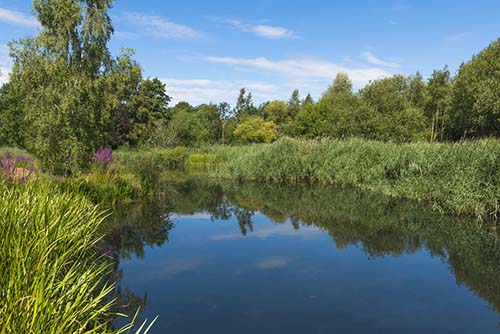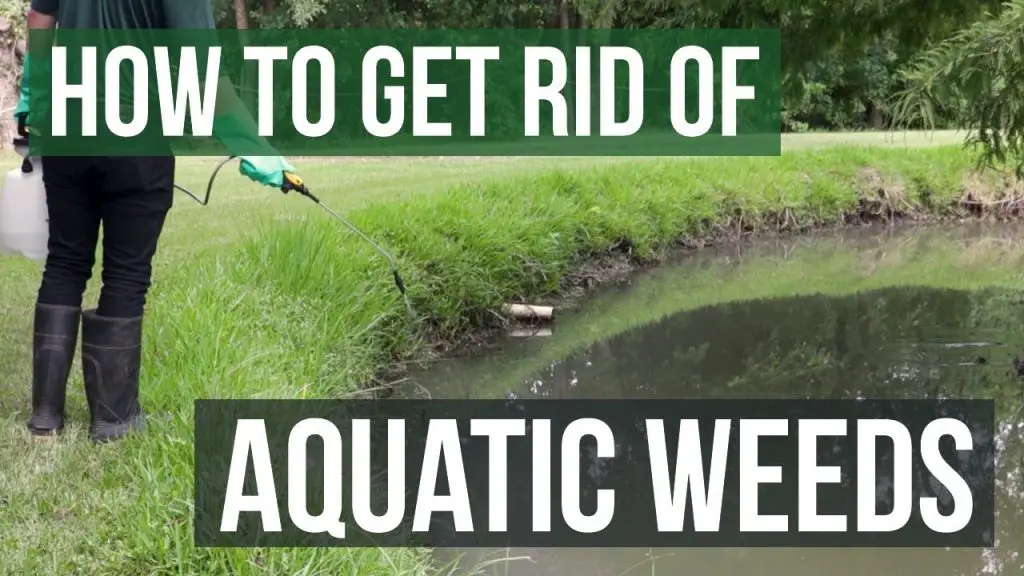Are you struggling with unwanted grass in your pond? Don’t worry, we’ve got you covered! In this comprehensive guide, we will discuss effective methods to get rid of grass in a pond and restore its beauty. Let’s dive in!

Credit: m.youtube.com
Identifying the Grass
Before taking any action, it is crucial to identify the type of grass that is invading your pond. Common types of pond grass include cattails, duckweed, algae, and water lilies. Understanding the specific grass species will help you choose the most appropriate removal method.
Get Rid Of Grass, Muck, Algae, And Sludge
Manual Removal
One of the simplest ways to get rid of grass in a pond is through manual removal. This method involves physically pulling out the grass from the water. You can use tools like rakes, nets, or even your hands to remove the grass. Be sure to remove the entire plant, including the roots, to prevent regrowth.

Credit: www.domyown.com
Chemical Treatments
If manual removal is not effective or practical, you can consider using chemical treatments to eliminate grass in your pond. There are various aquatic herbicides available in the market that can target specific types of pond grass. However, it is crucial to follow the instructions carefully to avoid harming other aquatic life in the pond.
Biological Control
Another eco-friendly method to control grass in a pond is through biological control. This involves introducing natural predators or competitors to the pond to suppress the growth of unwanted grass. For example, grass carp can be introduced to feed on certain types of pond grass.
Shading
Grass in a pond requires sunlight to photosynthesize and grow. By introducing shading techniques, such as floating plants or artificial covers, you can block sunlight and inhibit the growth of grass. This method is effective for controlling algae and other light-dependent pond grass.
Mechanical Harvesting
For larger ponds with extensive grass infestations, mechanical harvesting may be a viable option. This method involves using specialized machinery to cut and remove the grass from the pond. While effective, mechanical harvesting can be costly and may require professional assistance.
Preventive Measures
Prevention is always better than cure when it comes to pond maintenance. To prevent grass from taking over your pond, consider implementing the following preventive measures:
- Regularly monitor and remove any new grass growth
- Maintain a healthy balance of aquatic plants in the pond
- Properly dispose of grass clippings to prevent contamination
- Avoid overfeeding fish, as excess nutrients can promote grass growth
- Install aeration systems to improve water circulation and reduce nutrient buildup
Consulting Experts
If you are unsure about the best course of action to get rid of grass in your pond, it is always advisable to consult with pond management experts or local authorities. They can provide valuable insights and recommendations based on the specific conditions of your pond.
Conclusion
Getting rid of grass in a pond requires a combination of proactive measures, careful planning, and consistent maintenance. By identifying the type of grass, choosing the right removal method, and implementing preventive measures, you can effectively control grass growth and restore the natural beauty of your pond. Remember, a healthy pond ecosystem benefits not only the aquatic life but also enhances the overall aesthetics of your property.
So, roll up your sleeves, put on your gloves, and get ready to reclaim your pond from unwanted grass!




